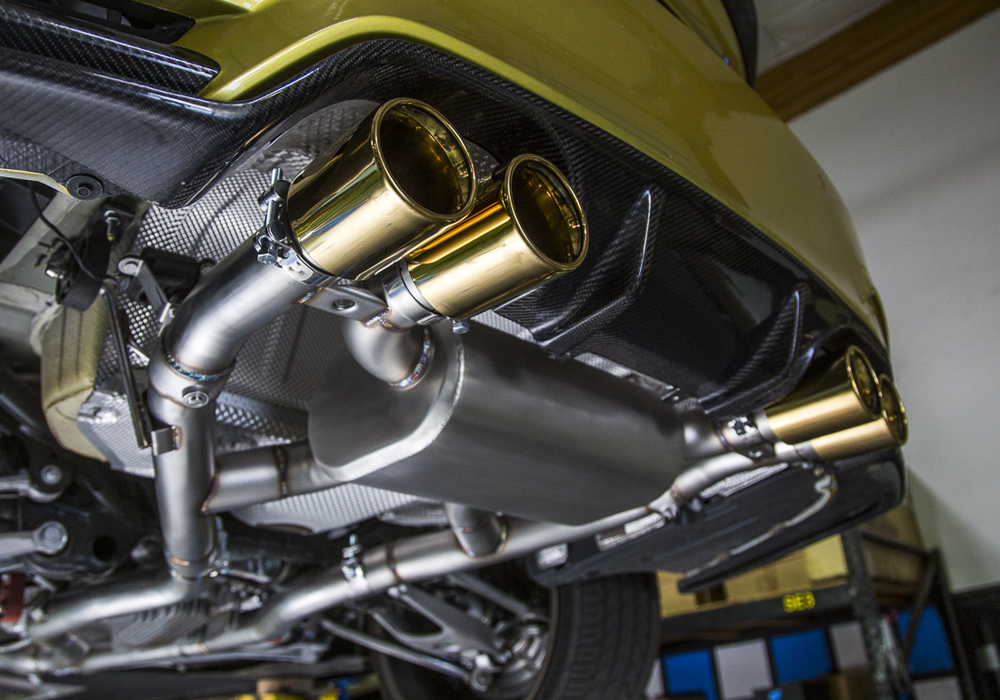

How to Choose the Right Performance Exhaust for Sedan Cars?
When it comes to giving your car a real boost in performance and driving experience, a peugeot 208 performance exhaust can be a game-changer. A thoughtfully chosen performance exhaust system enhances power output, refines engine sound and improves overall efficiency, making your drives more exhilarating. Performance exhaust systems come with a lot of great benefits. By optimising the flow of the exhaust gases, they reduce back pressure and improve engine efficiency, thus giving noticeable increases in horsepower and torque. It results in better acceleration and overall vehicle performance. Besides, they provide a deeper and more aggressive note of the exhaust, making your car sound bold and captivating, reflecting its enhanced capabilities.
The available aftermarket exhaust systems, even those designed for sedans, make use of lightweight materials, stainless steel or titanium. Besides the fact that this material is resistant to corrosion and can last longer, it can also help reduce the car's overall weight, enhancing its handling and fuel efficiency. Look out when choosing the correct exhaust for a sedan according to the system's kind, the material used, a sound that would be preferential to oneself, or any other. In this article, we’ll discover the things to consider when buying an exhaust for your sedan cars.
Understand the Correct Type of Exhaust System for Your Car
Building a suitable exhaust system helps with the performance and sound of your car. There are different types of exhaust systems, each with specific benefits. Cat-back improves performance and sound, axle-back focuses on the sound of the exhaust note and is inexpensive, while header-back has the maximum performance but takes extreme modification. Familiarize yourself with the main parts that comprise an exhaust system: mufflers, catalytic converters, and tailpipes. For instance, the BMW M8 exhaust sound is renowned for its sporty and exhilarating tone, showcasing how a well-matched system can deliver more power and perfectly complement your car's design and functionality.
Choose the Right Materials
A reason for different materials in the construction of exhaust systems is that they all have particular advantages. The most durable and rust-resistant variety is stainless steel, which is great for high-performance vehicles or those who have to deal with bad weather conditions. Titanium is lightweight, with an excellent weight-to-performance ratio thus, it's perfect for racing setups but a lot more expensive. Aluminised steel is cheap but tends to rust and wear easily, especially in areas where the air is humid or salty. The type of material used will have a direct impact on the performance and longevity of your exhaust, including its cost. Stainless steel balances durability and price for daily driving. Titanium is worth the investment if looking for weight reduction and performance. If you're a budget-conscious driver looking for short-term benefits, aluminised steel will work.
Match to Your Sound Preference
The sound of your exhaust system is more than just noise; it's a way your car shows its personality. From rude growls to refined hums, the exhaust note of any system can be quite different. High-performance exhaust systems let loose deep, throaty tones sure to thrill any car enthusiast, while quieter systems deliver subtle power gains for a subtle driving experience. Consider what plays to your driving style and environment. If you like running the roads and turning heads, then a bold, dynamic-sounding system it is. For those focused on a quiet commute, look into a system that can temper power with subtlety. Most manufacturers will host sound samples online, so I encourage you to do some surfing before you make your decision.

Tap into Installations and Fittings
Proper installation will ensure that your exhaust system serves the best performance. A perfectly compatible system with your car's make and model should be installed to avoid further problems like leaks, vibes, or poor performance. Extra adapters or accessories may be needed for some vehicles to install this smoothly. A poorly fitted exhaust will result in inefficiency, high maintenance costs, and possibly damage to other components of the car. Double-check the system's compatibility with your vehicle and ensure all parts fit seamlessly. Professional installation is highly recommended for complex systems to guarantee proper alignment and performance.
Seek a Professional Opinion
When choosing an exhaust system, do not rely on your personal research only. Ask experienced professionals, online forums, and reviews from customers. Real-life insights by car enthusiasts and experts will help you outline the best options concerning performance, durability, and sound quality. A reputable technician or exhaust specialist will evaluate your vehicle's specifications and suggest systems that will match your performance objectives. They will also be able to verify that the selected system meets or exceeds local noise and emission standards.
Final Thoughts
The right selection of an exhaust system for a car is all about striking a balance between performance, sound, and durability. Whether upgrading for driving dynamics or a more personalised tone of the exhaust note, different types of systems, materials, and fittings are understood to ensure you make an informed decision. With due research, professional advice, and attention to detail, you enjoy improved performance and a driving experience tailored to your preferences.
Also read more: https://www.invastor.com/blog/49659-8-Reasons-Mazda-is-a-Leader-in-Car-Design-and-Innovation/
Related Posts
© 2025 Invastor. All Rights Reserved

User Comments